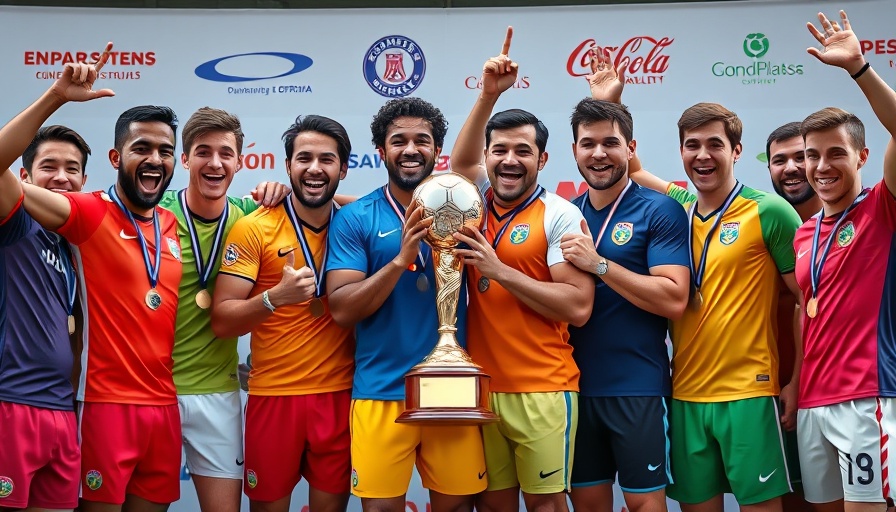
Celebrating a Remarkable Victory in African Sports
In an inspiring display of resilience and determination, cyclist Diara Siddiki from Mali emerged victorious in the 2025 Tour du Togo, a significant event in West African cycling. His journey, characterized by obstacles including injuries and punctures, culminated in a hard-fought victory that not only earned him the prestigious yellow jersey but also highlighted the potential of African athletes on an international stage.
In 'Mali's Diarra Sidiki wins 2025 Tour du Togo', the discussion dives into the inspiring journey of Siddiki, exploring key insights that sparked deeper analysis on our end.
A Testament to Tenacity Amidst Adversity
The 30th edition of the Tour du Togo, stretching across an impressive 1,300 kilometers and nine stages, was no easy feat. Siddiki’s victory is symbolic of a broader narrative surrounding African sports, where triumph often comes with an uphill battle. His performances amidst challenging conditions reflect an undercurrent of perseverance that many athletes from the continent experience. The determination he exhibited resonated well beyond the racecourse, emphasizing the need for support and resources for athletes in Africa.
The Collaborative Spirit of African Cycling
This year's Tour du Togo saw participants from various nations including Togo, Burkina Faso, Côte d'Ivoire, Ghana, and France, fostering a unique sense of unity and collaboration among the riders. The camaraderie shared among competitors, particularly as reported by French rider Julie Amadori, illustrates the bond that transcends borders in the name of sport. Amadori remarked on the pleasure of experiencing Togo's diverse landscapes during his return, highlighting the tour as not just a race but also a beautiful showcase of African heritage.
A Look at the Future of African Sports
As Siddiki dons the yellow jersey, the implications of his win stretch far beyond personal glory. It represents a pivotal moment for West African cycling, one that could inspire future generations of athletes. The potential within teams across the continent was acknowledged by insiders during the event, marking a shift towards a more competitive environment. With this shift comes the hope that increased visibility will lead to greater investment, not only in cycling but in sports overall across Africa.
Challenges and Opportunities Ahead
Despite the success of the Tour du Togo, systemic challenges remain. Infrastructure and support systems for athletes in African nations often fall short when compared to their counterparts in more affluent regions. As Siddiki's win shines a light on West African cycling, it also presents an opportunity for governments and organizations to invest in better facilities, training, and athlete support programs. This investment could unlock further potential and heighten international competitiveness.
Why This Matters Now
The timing of Siddiki's victory amidst ongoing discussions about sports development in Africa is critical. With political leaders and stakeholders now focused on national pride through sports, leveraging this momentum could result in a significant shift in how athletics is perceived throughout the continent. The intersection of sports with national identity could enhance tourism and economic development, showcasing Africa's capacity for international cooperation through athletic excellence.
Conclusion: A Call to Action for Support and Development
As we celebrate Diara Siddiki’s victory in the Tour du Togo, it becomes apparent that this event is more than just a race; it is a movement for the advancement of African sports and athletes. To capitalize on this triumph, stakeholders in sports and governance must critically evaluate how we can better support and nurture our sporting talent. Greater investments in African athletes will not only amplify our successes but also fortify our standing on the global sports stage. Let us work together to ensure that the triumphs of today pave the way for the legends of tomorrow.
 Add Row
Add Row  Add
Add 




Write A Comment